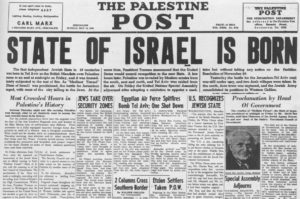ZIONISM
Zionism: The Jewish Nationalist Movement
 Zionism (צִיוֹנוּת) is the Jewish national movement dedicated to the establishment, development, and defense of a sovereign Jewish state in the historic land of Israel (Eretz Yisrael). Rooted in both spiritual and political aspirations, Zionism seeks to ensure the self-determination of the Jewish people in their ancestral homeland, a vision that became reality with the establishment of the modern State of Israel in 1948.
Zionism (צִיוֹנוּת) is the Jewish national movement dedicated to the establishment, development, and defense of a sovereign Jewish state in the historic land of Israel (Eretz Yisrael). Rooted in both spiritual and political aspirations, Zionism seeks to ensure the self-determination of the Jewish people in their ancestral homeland, a vision that became reality with the establishment of the modern State of Israel in 1948.
The term “Zionism” was coined in 1890 by Austrian-Jewish thinker Nathan Birnbaum, though the longing for return to Israel dates back thousands of years. The movement gained momentum in the late 19th and early 20th centuries, driven by rising global antisemitism, the Dreyfus Affair, and the leadership of Theodor Herzl, whose political Zionism laid the foundation for Jewish statehood.
Zionism is multifaceted, encompassing both religious and secular ideologies. While Religious Zionism views the return to Israel as a divine imperative, Political Zionism emphasizes diplomacy, state-building, and military defense. Socialist Zionism played a key role in the kibbutz movement, fostering agricultural and economic development. Other strains, such as Territorial Zionism, once proposed alternative locations for a Jewish homeland before settling on Israel as the indisputable choice.
Since Israel’s founding in 1948, Zionism has evolved to include efforts to strengthen the state, secure its borders, and protect Jewish communities worldwide. The Israel Defense Forces (IDF) plays a crucial role in safeguarding the nation’s existence, while Jewish immigration (Aliyah) continues to bring people from across the diaspora home.
Despite its success, Zionism remains a topic of global debate, often misrepresented by critics. However, at its core, Zionism is a movement of liberation, ensuring the Jewish people have a secure, sovereign home where their culture, faith, and future can thrive.
